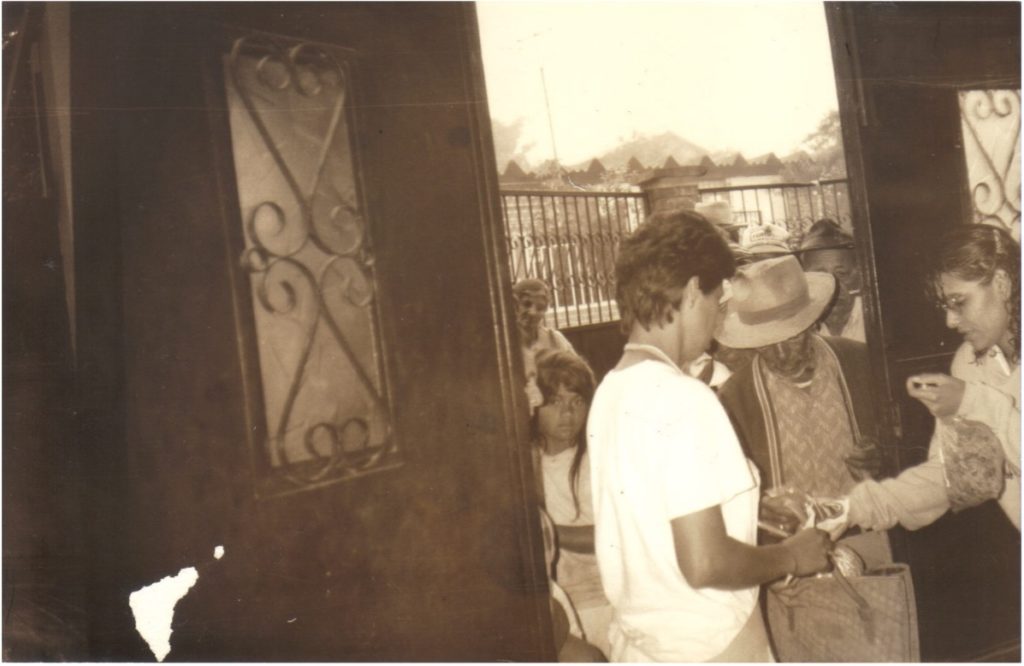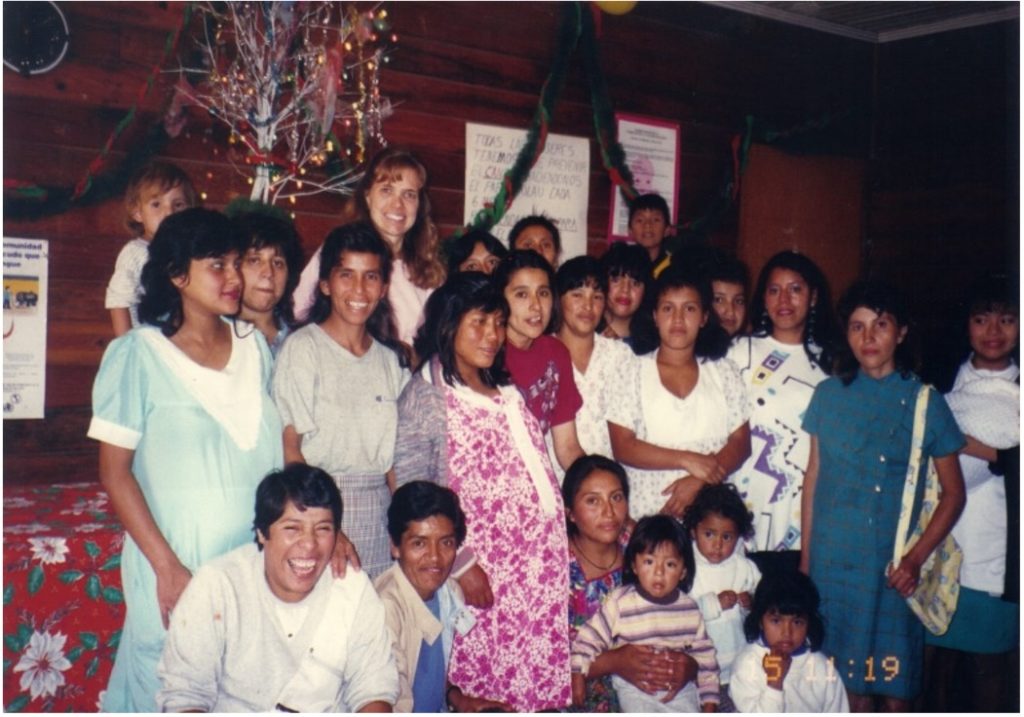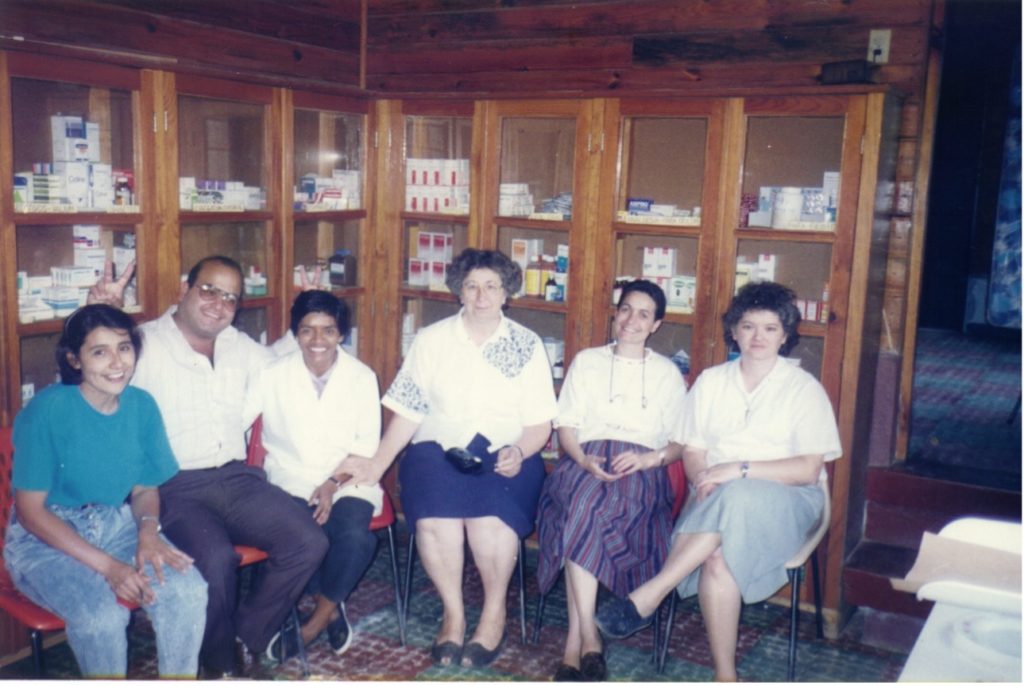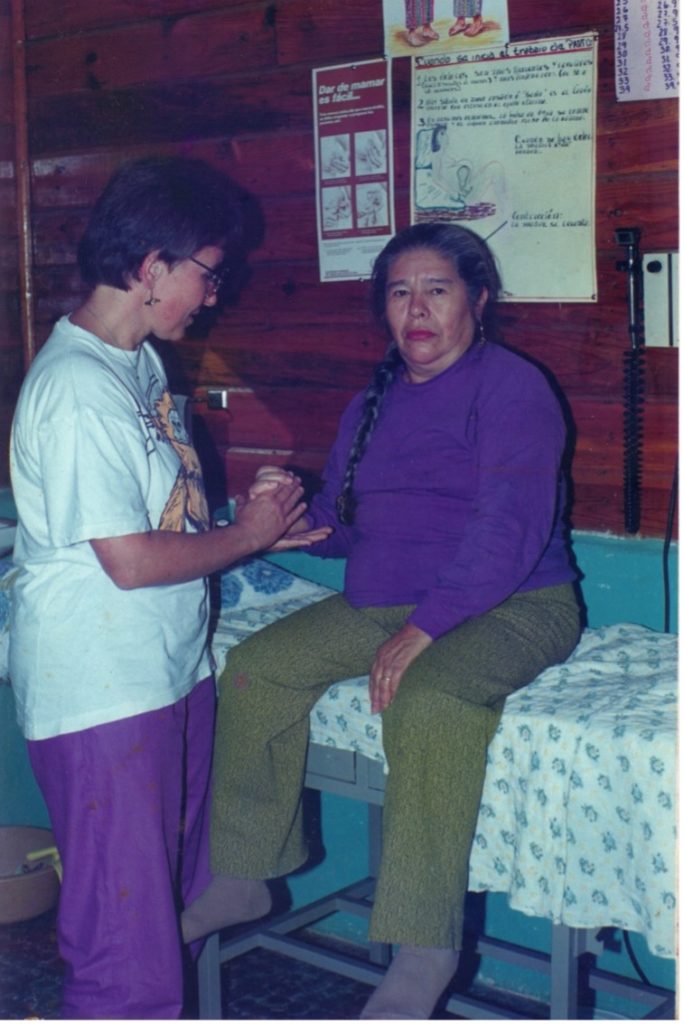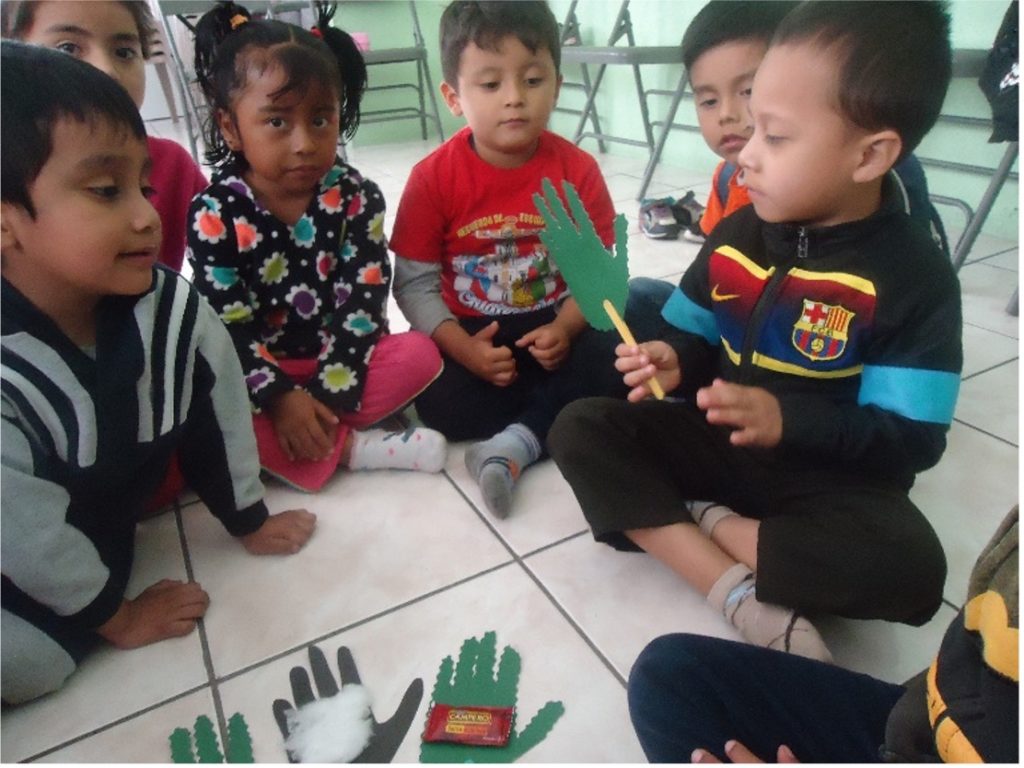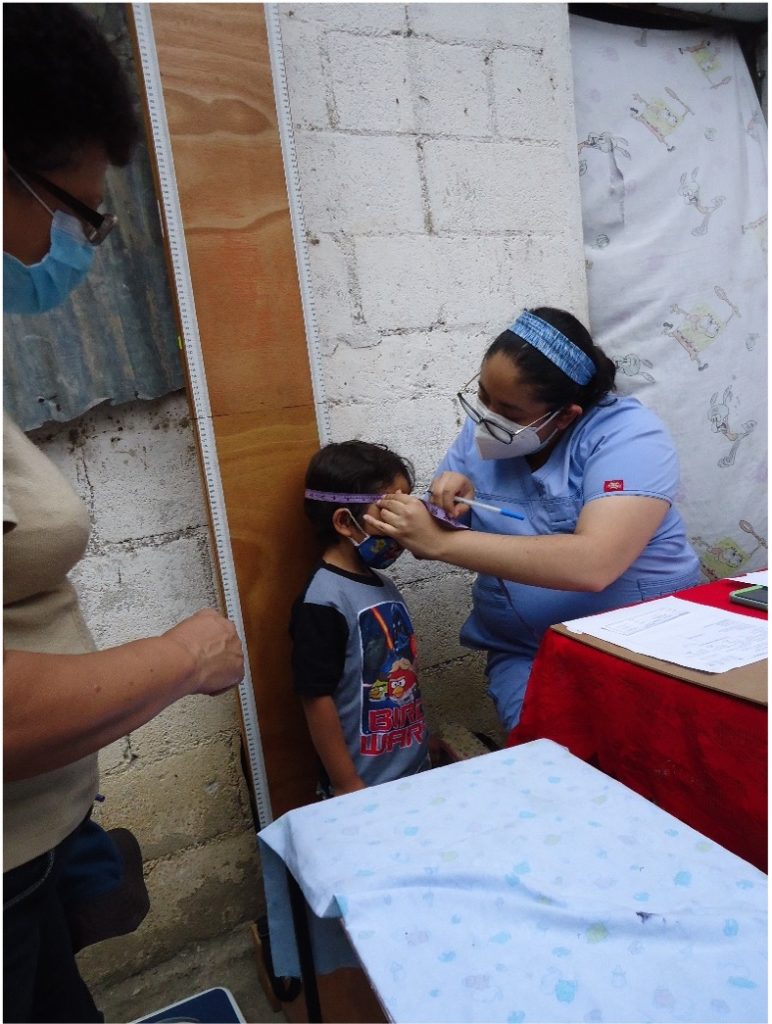An Historical Perspective: Our Work in Context
The Missionary Sisters of the Sacred Heart (MSCs) currently in Guatemala are managing two healthcare facilities. The ‘St. Joseph Dispensary’ (DSJ) was set up in 1975 in Zone 6 of the capital city, while the ‘Mother Cabrini Dispensary’ in the village of Bárcena, 45 minutes from the capital, was inaugurated in August 1996. Both works were created to address the urgent primary healthcare needs of these populations.

Between 1975 and 1989, the medical activities of the DSJ were limited, and only focused on general ill health. The assistance provided by the MSC provinces in the United States was significant, as was the altruistic service of some Guatemalan medical professionals who generously provided almost free care to the population of that area.
The impoverishment caused by the earthquake, the intensification of the internal armed conflict and the whole “scorched earth” policy carried out by the Guatemalan army, especially at the end of the 1970s, triggered a second wave of internally displaced people. Many fled the country, and many others settled in marginal areas. All this worsened the situation of poverty further. So, the DSJ, with the help of other institutions such as Caritas, who provided food bags for the poorest families attending the Dispensary, looked for ways to alleviate in some way the levels of malnutrition in the general population.
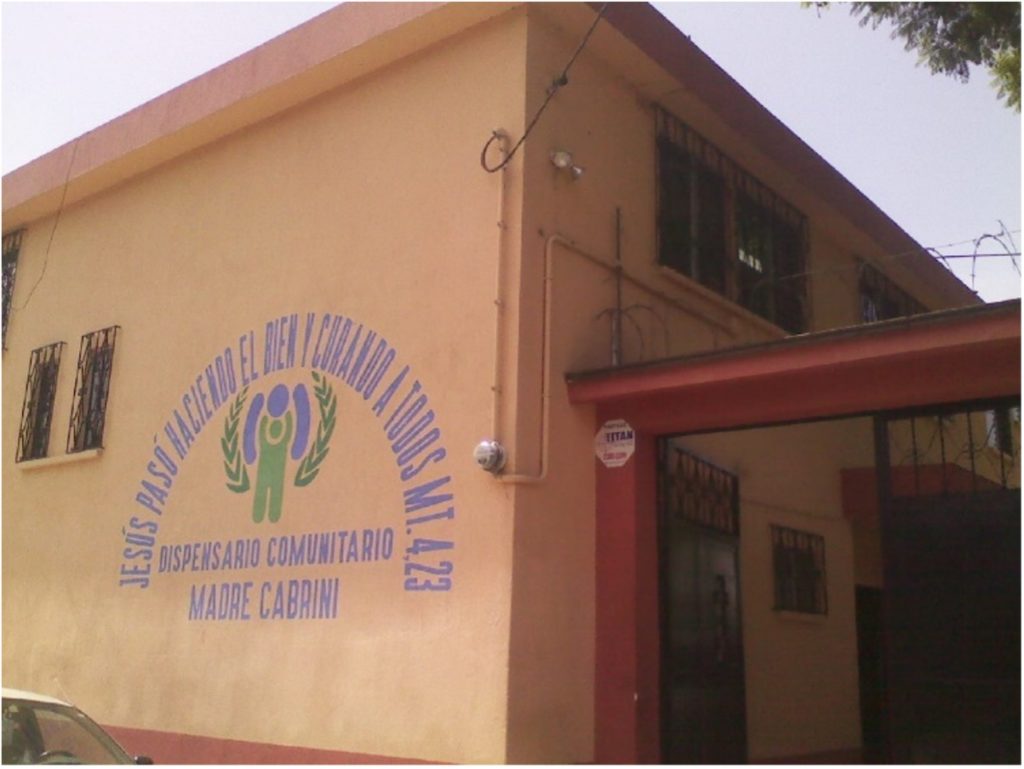
In the second half of the 1980s, and after several military groups in power, Guatemala began a slow process towards democracy. In 1996, the Peace Agreement was signed. In 1989, the St. Joseph Dispensary had initiated a new stage in its services. It went from medical consultations three afternoons per week for general health issues to designing a health plan: an innovative model of comprehensive health. At the international level at that time, the WHO, with the signing of the Alma Ata Agreements, proposed “Health for all by the year 2000″. With this slogan, and given the needs of the surrounding population, preventive health programs were initiated, such as: Prenatal monitoring, growth and development monitoring of children, attention to school groups, preventive care for cervical cancer in women, among others. Generating preventive programs was not enough; it was necessary to create a culture of health. The population needed to go from being an object of health to protagonists of health. As in all cases, cultural transformations are always slow, and this is still true today. However, we try to realize it in the different stages and spaces of our service.
Why We Do What We Do: Compassion, Mercy, Charity and Reparation
If the WHO technical slogan was “Health for all by the year 2000″, the Gospel message has always been “I came so that they might have life and have it more abundantly” (John 10:10). For us, Missionary Sisters of the Sacred Heart of Jesus, an abundant life is to embody the Gospel with our lives, and to bring the Good News to the poorest of the poor. In the same way, the Gospel of St. Luke (Lk 4:18ff) came to be enlightening and motivating. To proclaim the Kingdom, bring the Good News to the poor, give freedom to the captives, restore sight to the blind: is presented to us as concrete gestures translated into practical, efficient health actions with human warmth.
Seen objectively, we can affirm that we do not try to make a difference, nor do we seek excellence; we only try to collaborate with those in need. Phrases such as: comprehensive health services, empowerment, community participation, although they are present in our daily work, are not unique to our project. They are slogans registered in the wide-ranging health projects sponsored by WHO or PAHO or by the Ministry of Health of Guatemala or the Sustainable Development Goals (SDGs).
The originality or inspiring breath of our comprehensive health projects is rooted in the values of Cabrini spirituality: Compassion, Mercy, Charity and Reparation.
Compassion: “to suffer with the other”, to put oneself in someone’s place, to share the same feelings. The term that best translates this value is empathy – to identify with the pain and suffering of the other. This Cabrini value has led us to comprehend the reality of impoverished people, to understand their history, their worldview. We try to read the signs of the times evangelically, and generate processes that allow more effective responses through the projects we promote. Compassion makes us passionate in all we do, passionate for the “already, but not yet, of the Kingdom“. It calls us to give and to do everything with energy and creativity.
Mercy: “corde -miseriae”, to place the heart close to the misery of the other. To allow ourselves to be sincerely affected by the reality of the impoverished. Our hearts close to the vulnerable. This value pushes us to make preferential options for those left behind in social and human development. Mercy leads us to them. If the value of compassion places us in the perspective of the other; then mercy places us in their concrete vulnerability.
Charity: our Constitutions proclaim “The love of Christ compels us”. The love of Christ revealed in his Paschal mystery is an imperative. This love calls us, claims us, moves us. It is not based on classism or pity that looks down on others and hands out a couple of coins to appease one’s conscience. Charity, as Christ’s salvific love, pushes us to total donation; we do not give alms, we do not give what we can spare, but we offer ourselves, we wear ourselves out day by day so that others may also have life. It is a creative and intelligent love, seeking the best way for love to be alive and operative, transforming the realities of death into realities of life.
The Spirit of Reparation, central to the spirituality of the Sacred Heart of Jesus, and distinctive of the Cabrini Charism, points us towards the tasks and concrete actions needed to participate in healing the wounded world, the fractured humanity, the damaged ecosystem. Through Jesus, we contemplate the poor and wounded of this world, and from the mystery of Christ, participate in their reparation, because Jesus has come so that we may have life and have it in abundance.
Nourishing and Educating; Educating and Nourishing
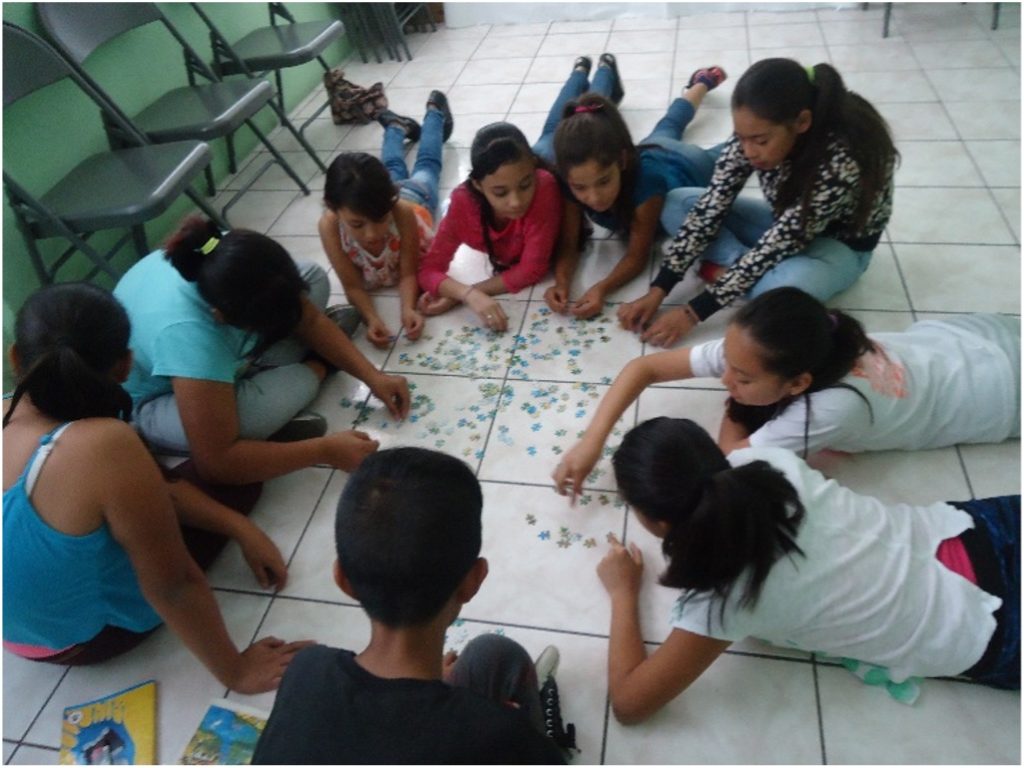
Without excluding any social or ethnic group, our healthcare ministry in Guatemala strives to provide comprehensive healthcare services that benefit prioritized groups: the elderly, women and children. According to 2018 statistical data, 40.8% of the population is under 15 years of age. Also, recent data on nutritional status illustrates that Guatemala has the highest rate of chronic malnutrition in Latin America and some of the highest in the world (49%). In some rural areas, especially in the Department of Chiquimula, it reaches 80%. UNICEF reports also inform us of a worrying situation for Guatemalan children. Malnutrition will physically affect their physical growth and intellectual development, preventing their access to, and perseverance in, the educational system and other essential actions for their growth and development.
Through our healthcare works, the MSCs try to be part of the answer to these problems. We are coordinating efforts with other institutions and the people we serve to achieve a sustainable response. In the 1980s in DSJ, the delivery of food packages was from donors such as ‘Caritas’ or the ‘National Brewery’; the latter continues to deliver rations of ‘Incaparina’ (complete nutritional preparation) that are distributed to the elderly through our PAM program, to pregnant women and underweight children. Another important service is the one we developed with our team in Barcena, the community based Mother-and-Child program, which since the 1990s, delivers food packages to children from 0 – 7 years old at the Mother Cabrini Dispensary and its nearby areas of the village of Barcena.
Among the actions of cultural change and empowerment are education processes for teachers (most of them are women), who voluntarily support our Mother-and-Child program or who conduct research for drawing baselines to determine the nutritional status of children under 12 years. Nourishing and educating, educating and nourishing; developing cognitive abilities or positively stimulating the capacities of girls and boys, are results achieved through our alternative and complementary projects such as our ‘Chispa Program’ or our ‘Healthy Families’ training workshops.
Where Others Don’t Go

In January 2021, the Food Security Secretariat (SESAN) and the Guatemalan Ministry of Health launched the ‘Great National Crusade for Nutrition’, a comprehensive health program in response to the nutrition problem. However, the areas near our two healthcare works will not benefit from this crusade. For us MSCs, far from being discouraged, we saw this situation as a sign of the times, a call to continue accompanying the people with our projects for nutrition and social development. The purpose of joining forces with different local and international social actors is to seek food security for the population. We are where we are needed, and where others cannot or do not want to go.
Sister María Concepción Vallecillo MSC, Misión Guatemala.
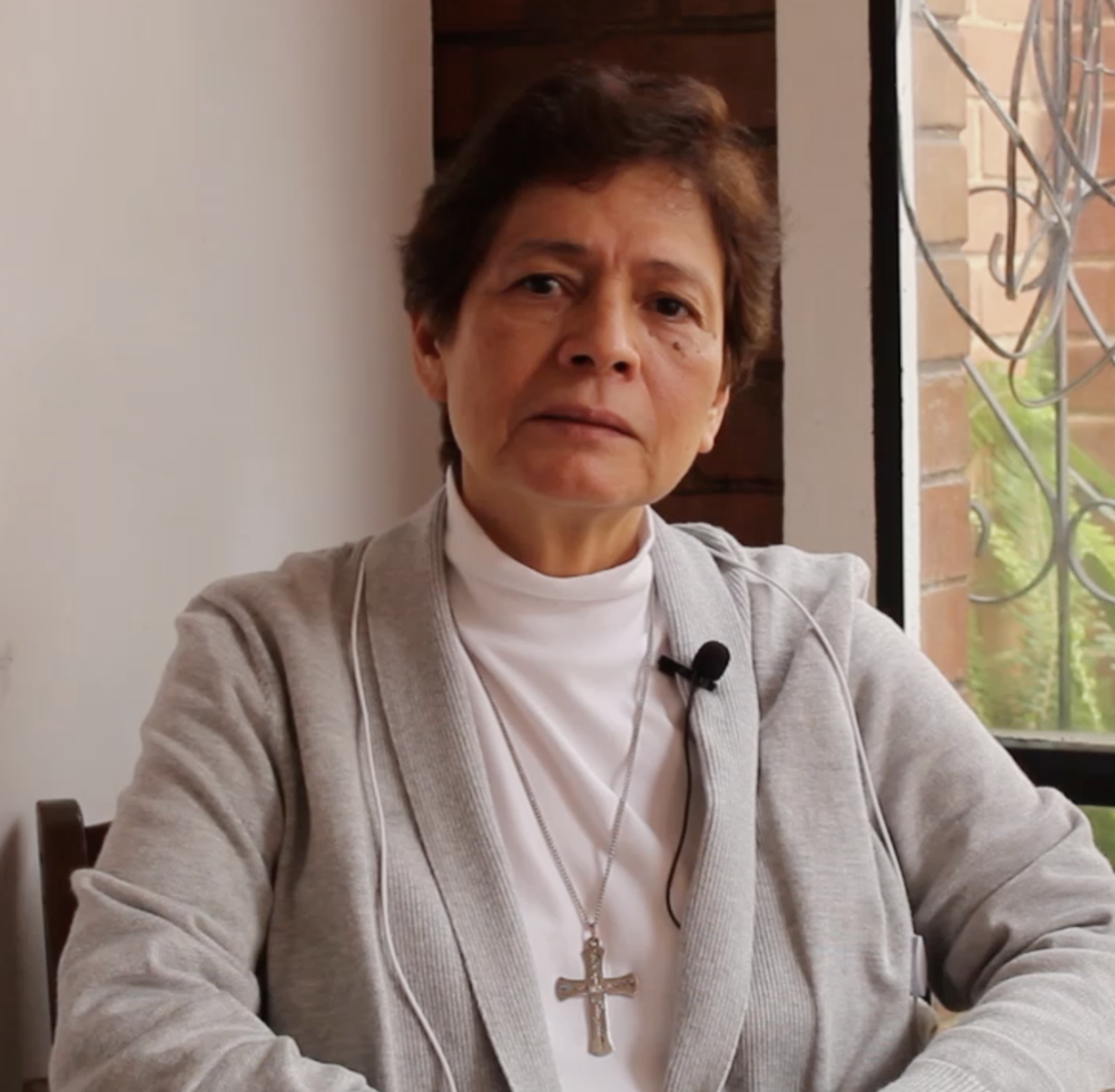
Sister María Concepción Vallecillo MSC
Misión GuatemalaSr. Concepcion Vallecillo MSC studied Ecclesiastical Science, Philosophy, and Theology at the Comillas Pontifical University in Madrid, Spain. During her time there, she also volunteered with Doctors of the World for nearly two years, providing medical care for Moroccan immigrants
She graduated from the University of San Carlos of Guatemala in 2003 with a diploma in Legal Medicine and a Master in Public Health with an emphasis in Community Health Services Management.
From January 2009 to August 2014, she was MSC Director of General Coordination of Community Health Services, where she was involved in the design of projects to combat intrafamily violence. In June 2014, she took on the additional role of MSC General Assistant for Latin America. She has also spent a year teaching at Rafael Landívar University in Guatemala.
Sr. Concepcion is currently the Director of Cabrini Guatemala and is on the Advisory Committee for MSC CAMEX SMP


